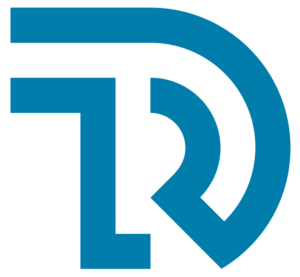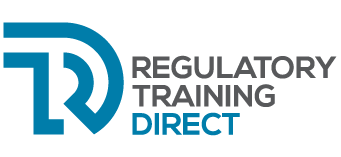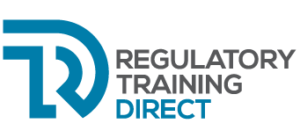current affairs
Issue 237 | June 2023
As of this month’s newsletter, we will be including a new section highlighting credible (vetted) research, ingredients, suppliers and manufacturers. This is an opportunity to promote your service to our worldwide subscribers. To enquire about the cost for this, contact us on info@regulatorytrainingdirect.com
Training news
NEW COURSE!! 1.10. Preparing and submitting a listed medicine application. This 90-minute course teaches you the fundamentals of every step of the listing process. It runs through practical examples, common pitfalls and useful tips. It comes with an SOP Checklist that you can use when preparing and submitting listed medicine applications. View full agenda here.
Various courses on labelling. Different courses cover labelling for Australian listed medicines, New Zealand dietary supplements, cosmetics in Australia, cosmetics in New Zealand, and foods in both Australia and New Zealand. All course agendas can be viewed here: https://www.regulatorytrainingdirect.com/#course-summary
2.03. Food Claims. Revised, with enlarged scope, and presented by our colleagues at Correct Food Systems. View the agenda here.
Follow us on LinkedIn: We hope you like our newsletter. If you want to receive up-to-the-minute announcements on new courses, new content and vital regulatory updates follow us on LinkedIn.
Regulatory news
Complementary Medicines and Medical Devices:
Regulatory updates affecting complementary medicines. The TGA gave a presentation at the ARCS Annual Conference in June 2023. This is essential reading for anyone involved with the supply of complementary medicines! Topics include – mandatory requirements for new listed medicine ingredients – Australian Regulatory Guidelines for Sunscreens – Comparable Overseas Bodies Guidance – Requirements for microorganism characterisation in Listed Medicines and Registered Complementary Medicines – New sponsor educational tools – compliance focus. Source: TGA
New poisons standard. The Poisons Standard – July 2023 supersedes the June 2023 standard and includes changes to psilocybin and MDMA. Source: TGA
Ingredients permitted in listed medicines updated. Two added ingredients: Refined Buglossoides arvensis seed oil and Chicken sternum cartilage powder. Two changed ingredients: violet leaf absolute, and change of name from Saccharomyces cervisiae polysaccharides to Saccharomyces cerevisiae polysaccharides. One ingredient removed: poloxamine 1301. TGA explanatory notes here, and the determination is here.
Systematic literature reviews for complementary and OTC medicines. Another presentation given at the 2023 ARCS conference. Dossier requirements and common issues. Relevant to compiling an evidence package to support indications made for a listed medicine, and an application for the evaluation of a substance for use as a new ingredient in listed medicines. Source: TGA
In vitro diagnostic (IVD) medical devices. New guidance has been published on the type of manufacturer evidence required. Source: TGA
TGA seeks comment. TGA is reviewing the risk classification of medical devices that contain certain materials from animal, microbial or recombinant origin, and requests comments by 28th July 2023. Consultation paper can be found here.
Compliance action
Infringement notices totally $558,840 issued to three Sydney based TSG stores and Jaradat and Sabbagh Group for allegedly importing 22 consignments containing a total of 379,600 nicotine vaping products. The products did not comply with standards, were not registered on the ARTG, and contained prohibited ingredients that pose a significant public health risk. Source: TGA
Pracmed Healthcare has been issued three infringement notices totalling $39,960 for alleged unlawful advertising of complementary medicines. Their website allegedly contained unapproved references to weight loss (bariatric) surgery which is generally performed in patients with severe or morbid obesity. They are also alleged to have advertised their products in a way that suggests harmful consequences may result from not using their product. They also allegedly made a therapeutic claim about their products that was not included in their Australian Register of Therapeutic Goods (ARTG) entries. Source: TGA
The TGA has issued 5 infringement notices totalling $66,600 to Affinity Corp Australia for the alleged unlawful advertising of un-approved prescription-only medicinal cannabis products. Source: TGA
Safety alerts – source: TGA
The following imported products were tested and found to contain undisclosed sildenafil: Big Penis USA, USA Black Gold tablets, Germany Niubian tablets, and Australia tablets.
Multani Kaminividravana Rasa (popularly known as ‘Kamini’, or Kamini Vidrawan Ras) tablets labelled as an aphrodisiac were found to contain many ingredients classified as dangerous poisons including Singraph (Hingula) Swhich is the common name of traditional ingredient cinnabar (mercury (II) sulphide). Exposure to mercury – even small amounts – may cause serious health problems, having toxic effects on the nervous, digestive and immune systems, and on lungs, kidneys, skin and eyes.
Update on MDMA and psilocybin access and safeguards. It may be some time before treating psychiatrists have the necessary approvals and supplies to commence MDMA and psilocybin treatment of certain mental illnesses. psychiatrists can be authorised to prescribe products containing MDMA or psilocybin for use in psychedelic assisted psychotherapy to treat specific mental health conditions. MDMA may be prescribed for the treatment of post-traumatic stress disorder (PTSD). Psilocybin may be prescribed for treatment-resistant depression (TRD). Source: TGA.
Products cancelled from the ARTG
PixoTest® COVID-19 AG Test Kit from Pharma Soul: Failure to comply with conditions of inclusion and provide evidence to demonstrate that the Device complies with the applicable provisions of the Act and the Regulations.
Severe Acute Respiratory Syndrome Coronavirus 2 (SARS-CoV-2) Antigen Assay Kit – Talbot Medical: Failure to respond with information requested under s41JA to provide evidence to demonstrate that the Device complies with the applicable provisions of the Act and the Regulations.
Infinitus Health Care Joint Support Glucosamine 1500 – Achieve Correctness (Australia): The sponsor failed to comply within 20 working days after a notice was given under section 31 requiring it to provide information or documents about the certifications made in relation to the goods.
Botanical Adulterant Prevention Programme – European elder berry and elder berry extracts. Adulteration is discussed in this article published by the American Botanical Council. To be kept informed on news of herbal adulteration, follow the Botanical Adulterants Prevention Program on LinkedIn.
Research and ingredients news
Understanding herbal extracts. Australian suppliers of herbal medicines have needed to understand plant extract ratios since the implementation of the Therapeutic Goods Act in 1991. Suppliers in other countries often do not have this understanding. This article published by the National Library of Medicine makes reference to the TGA, as well as the USP, the American Herbal Products Association and the European Medicines Agency. Also available in Frontiers in Pharmacology.
In the press
Fitness influencers and dubious health claims. This article discusses a study from the University of South Australia which surveyed 100 of Instagram’s top fitness influencers from around the world. Sydney Morning Herald.
Why young vaping addicts say regulations won’t work. Discusses the health crisis among the young battling their addiction. Sydney Morning Herald
“Expert reveals brutal truth behind ‘revolutionary’ weight loss drug Ozempic”. Dietitian and nutritionist says “For every client I have seen who tried one of these new semaglutide drugs and achieved significant weight loss over six to 12 months, I have seen another two who have not succeeded” News.com.au
“Illegal solariums fuel call for total ban on ‘dangerous machines’”. People are advertising the machines for personal use to get around the ban on commercial solariums which was enforced eight years ago, leading to melanomas and other skins cancers. Sydney Morning Herald.
New Zealand News Supplied by Michell Cubitt, Smart Regulatory Solutions
The New Zealand Therapeutic Products Bill has passed the second reading – two parties are in opposition and the remainder support it. There are minimal changes after the health select committee report which is leading many in the industry to query what the final impact of the Bill will be on industry. It is difficult to judge the overall impact because secondary rules have not been developed at the same time as the Bill. There is plenty of detail around the specific implementation of the Bill that has not yet been made clear.
Foods:
Application to change the code: A1236 – Low-THC hemp leaf, seed sprout and root as food and food ingredients. This application seeks approval to permit the sale of low-THC hemp leaf, seed sprout and root as food and food ingredients in Australia and New Zealand. Source: FSANZ
Current calls for comment updated 15th June 2023 (from FSANZ) and fron mdeia release 21st June:
Application A1250 – Pullulanase from GM Bacillus subtilis (gene donor: Bacillus deramificans) as a processing aid: To permit pullulanase sourced from a genetically modified strain of Bacillus subtilis containing the pullulanase gene from Bacillus deramificans, as a processing aid in starch processing for the production of glucose syrups and other starch hydrolysates. Submissions due by 6pm (Canberra time) 27 July 2023.
Application A1268 – Steviol glycosides produced by bioconversion using new enzymes produced by GM Escherichia coli: To permit several enzymes introduced into GM Escherichia coli, as processing aids, in the manufacture of the intense sweetener food additive, steviol glycosides, by the bioconversion method of production. Submissions due by 6pm (Canberra time) 27 July 2023.
Application A1265– 2′-FL/DFL, LNT, 6′-SL sodium salt and 3′-SL sodium salt for use as nutritive substances in infant formula products: To permit the voluntary use of four human-identical milk oligosaccharide (HiMO) ingredients produced by microbial fermentation, alone or in combinations, as nutritive substances in infant formula products (IFP) namely:
– Mixture of 2′-fucosyllactose (2′-FL) and difucosyllactose (DFL) (“2′ FL/DFL”);
– Lacto-N-tetraose (LNT);
– 6′-Sialyllactose (6′-SL) sodium salt; and
– 3′-Sialyllactose (3′-SL) sodium salt.
The four HiMO ingredients are produced from the same genetically engineered Escherichia coli (E. coli) K-12-derived platform strain as Glycom’s 2′-FL and LNnT which is already authorised for use in Australia and New Zealand. Submissions due by 6pm (Canberra time) 7 July 2023.
Application A1266 – Endo-1,4-beta-xylanase from GM Trichoderma reesei (gene donor: Fusarium verticillioides) as a processing aid: To permit the use of endo-1,4-beta-xylanase sourced from a genetically-modified strain of Trichoderma reesei containing the endo-1,4-beta-xylanase gene from Fusarium verticillioides as a processing aid in starch processing and the production of potable alcohol. Submissions due by 6pm (Canberra time) 10 July 2023.
FSANZ) is calling for comment on an application for the production of food additive sweeteners, steviol glycosides, through bioconversion. The steviol glycosides — rebaudioside M and rebaudioside I — are manufactured using three protein engineered enzymes not currently permitted for such use. Submissions close 6pm (Canberra time) 25 July 2023
Call for comment on the addition of four human identical milk oligosaccharides in infant formula to permit the voluntary addition of the substances: a mixture of 2′-fucosyllactose (2′-FL) and difucosyllactose (DFL) (2′-FL/DFL); lacto-N-tetraose (LNT); 6′-sialyllactose sodium salt (6′-SL); and 3′-sialyllactose sodium salt (3′-SL). The four substances are naturally present in human milk and their addition to infant formula will support development of products that better reflect the profile of human milk. The period for comment closes at 6pm (Canberra time) 7 July 2023.
Food Recalls
NSW Health has issued a community alert as a previously recalled batch of non-food grade poppy seeds was found to have re-entered the supply chain. This product was previously recalled in November 2022, but Coles has identified that some units of the product were purchased from their stores in recent weeks. Reported symptoms can be severe, including severe muscle cramping, muscle spasms and abnormal movements, seizures, and cardiac arrest. Source: NSW Health and also reported in Sydney Morning Herald
KO Foods Enoki Mushrooms – due to an incorrect use by date resulting in an increased Listeria monocytogenes risk. Source: NSW Food Authority
Fruit Perfections Fresh Enoki Mushrooms – due to contamination with Listeria monocytogenes and no instructions to cook the product before consumption Source: FSANZ
Concordia Traders Enoki Mushrooms – due to an incorrect use by/best before date resulting in an increased Listeria monocytogenes risk. Source: FSANZ
Natural Mushrooms Enoki Mushrooms – due to an incorrect use by date resulting in an increased Listeria monocytogenes risk. Source: FSANZ
Vegetali Foods – One Rusty Jack Indian Butter Chicken Simmer Sauce – due to undeclared allergen (tree nut – Cashew). Source: NSW Food Authority
That’s Amore Cheese Burrata and That’s Amore Cheese Mini Burrata – due to Listeria monocytogenes contamination. Source: NSW Food Authority and also news.com.au
Jalna Lactose Free Vanilla yoghurt and Jalna Sweet & Creamy Greek Coconut Yoghurt – due to potential contamination of E. coli. Source: NSW Food Authority
Mondelez Australia Cote D’Or Bouchee- incorrect packaging (non-English labelling) which has resulted in the allergens (contains: milk, hazelnuts, almonds and soy, may contain wheat) not being listed. Source: NSW Food Authority
Coffee Table Delights Date & Walnut Ball and Choc Date Almond Slice – due to the presence of an undeclared allergen (Gluten). Source: FSANZ
Efoodz Roast Beef with 3 Veg – due to the presence of an undeclared allergen (gluten). Source: FSANZ.
Coffee Table Delights Meringues – due to the presence of an undeclared allergen (gluten). Source: FSANZ and news.com.au
In the press
“Which bread is best? Probably not that supermarket sourdough”. 83 per cent of “sourdough” products contained ingredients not traditionally found in sourdough breads. Source: Sydney Morning Herald
Why your protein bars and powders may not be as healthy as they claim. The study, published in Frontiers in Nutrition this week, analysed the nutrition content, ingredients and claims on the packaging of 558 products sold in Australian supermarkets, pharmacies, health food stores and gyms. They found that “nearly half of the products didn’t have the mandatory labelling to indicate that they are not suitable for children under 15 years or pregnant women …” and “one-third of the products – most commonly the protein bars (69.2 per cent) – had incorrectly calculated the kilojoules. Over half had under-calculated and some were incorrect by 30 per cent.” FSANZ is currently reviewing Formulated Supplementary Sports Foods and expects the findings to be released in 2024. Source: Sydney Morning Herald
Biosecurity. Australia is an island continent, and it is important to protect crops from foreign diseases. Overseas travellers are often stopped at the border with illegal imports. “Plant cuttings disguised as botox, tea, and seafood have cost four travellers entering Australia $22,000 in fines.” Source: Australian Broadcasting Corporation.
“Understanding this food label could save you thousands”. Another article discussing the confusing difference between “best before” and “use-by” dates. Source: news.com.au
Additional food news provided by Correct Food Systems
Labelling assistant – NSW Food Authority has an online labelling assistant tool that guides users as to what to include on a label. Food Labelling Assistant | NSW Food Authority
Reminder: mandatory allergen labelling changes. Businesses who label packaged food are advised to ensure they are progressing to having fully compliant labels, using correct terms and format by Feb 26 2024. Standardcome into place as mandatory requirements on this date. Correct Food Systems has information on this change and can assist you to understand the specific new requirements for declaring the allergens correctly on your food and drink products. CFS Plain English Allergen Labelling (correctfoodsystems.com.au)
Allergen “Free” claims. Clients should be aware of a current legal case in the Queensland Supreme Court, where the term “allergen free” will be tested. The manufacturers of a product sold as being “dairy free” are being sued for $10,000,000 relating to the death as a consumer of that product used as an ingredient.
New applications and proposals
Proposal 1058: NIP added sugar. No changes announced to the proposal to have another line ” Added Sugar” added into the Australian Nutrition Information Panel (NIP). Announcement expected late 2023.
Proposal 1059 kJ for alcohol. No change announced to proposal to add a requirement for packaged alcohol to carry kilojoule statements. Announcement expected soon.
Proposal P1028 Infant formula. Second call for submissions by 7th July 2023 P1028 – Infant Formula (foodstandards.gov.au)
Cosmetics, Personal Care and TGA Listed Sunscreens:
Updated guidelines to categorising your chemical importation and manufacture. Latest update 30th May 2023. The draft OECD TG 125 on particle size and particle size distribution on nanomaterials is now final and part of the guidance. Content related to nanoscale introductions updated as a result. Source: AICIS
Completed evaluations as at 29th June 2023. 18 chemicals evaluated listed here along with the outcomes.
Hazardous chemicals. For decabromodiphenyl ether (decaBDE), perfluorooctanoic acid (PFOA), its salts and PFOA-related compounds, there is a new set of rules. If you are currently importing or exporting any of these chemicals:
You must cease any new import or export of these chemicals. You will need to apply to AICIS for import or export authorisation of PFOA, its salts and PFOA-related compounds or decaBDE (application fee will apply).
You will only be able to resume importing or exporting these chemicals if you receive authorisation from AICIS. It will be an offence to import or export these chemicals without authorisation and penalties apply.
If you are planning to introduce any of these chemicals:
Apply to AICIS for import or export authorisation of PFOA, its salts and PFOA-related compounds or decaBDE (application fee will apply)
Receive authorisation from AICIS before you can import or export these chemicals – it will be an offence to import or export these chemicals without authorisation and penalties apply.
New guidance on completing a Pre-Introduction Report (PIR) for ‘internationally-assessed for human health but not the environment’. The guide has a checklist of essential information that you need before you start the PIR form, shows you the questions that you must answer in the PIR form in AICIS Business Services for the type ‘internationally-assessed for the environment but not human health’, and is designed to help you avoid common errors. Information here.
Chemicals added to the Inventory 5 years after issue of assessment certificate. Four chemicals listed here include a linseed oil polymer, a soybean polymer and nickel sulfide.
In the press
Meet the people policing the influencers. University researchers share their views, plus a new website checking on influencers. Source: Sydney Morning Herald.
. . . . . . . . . . . . . . . . . . . . . . . . . . . . . . . .
Published by Regulatory Training Direct www.regulatorytrainingdirect.com
Providing regulatory training courses for complementary medicines, GMP, foods, cosmetics and dietary supplements.
This newsletter is sent at no charge. You are welcome to forward this to any colleagues who may find it useful. To receive this newsletter regularly click this link
Don’t want these emails? Unsubscribe or Manage Email Subscriptions



